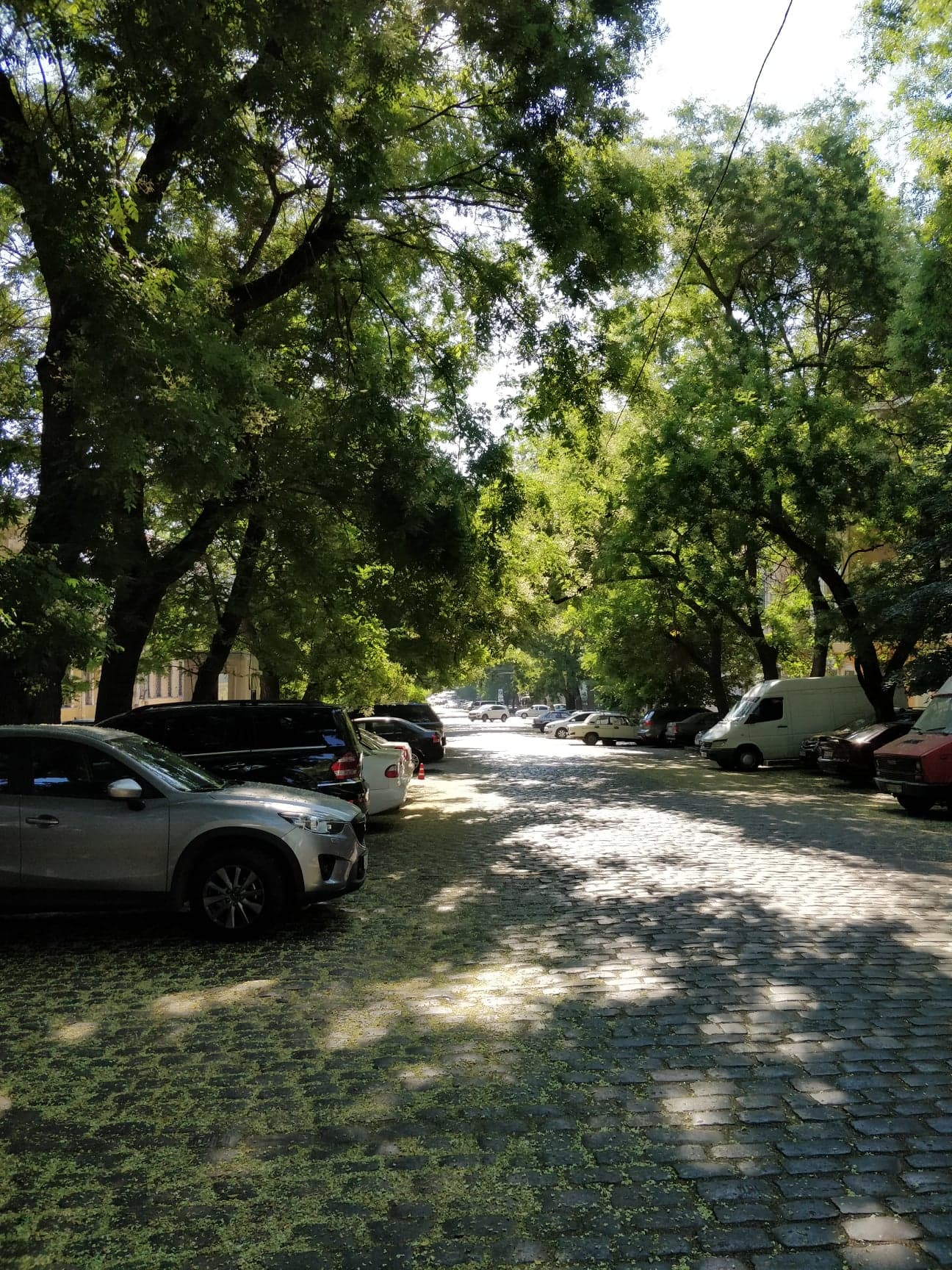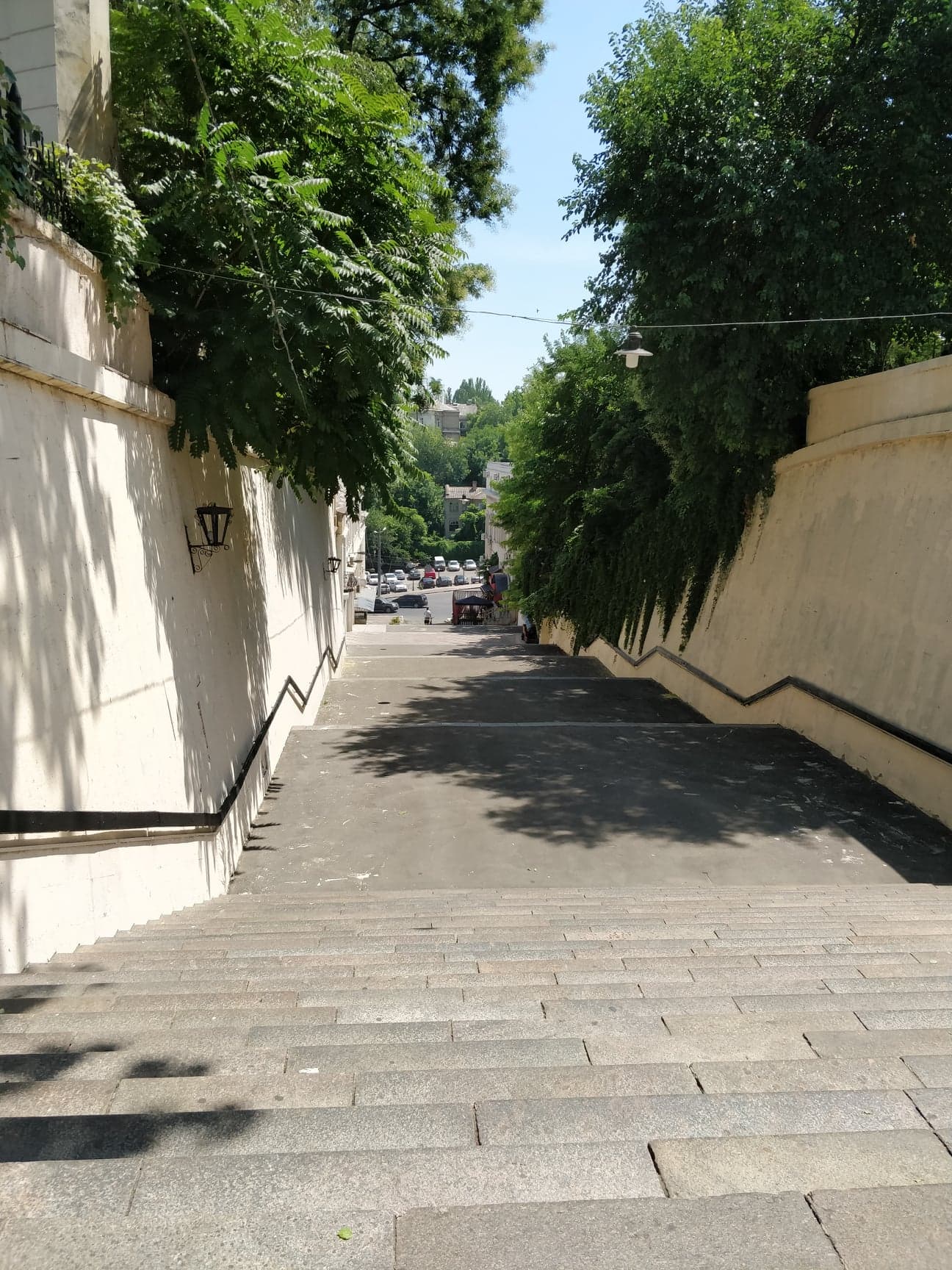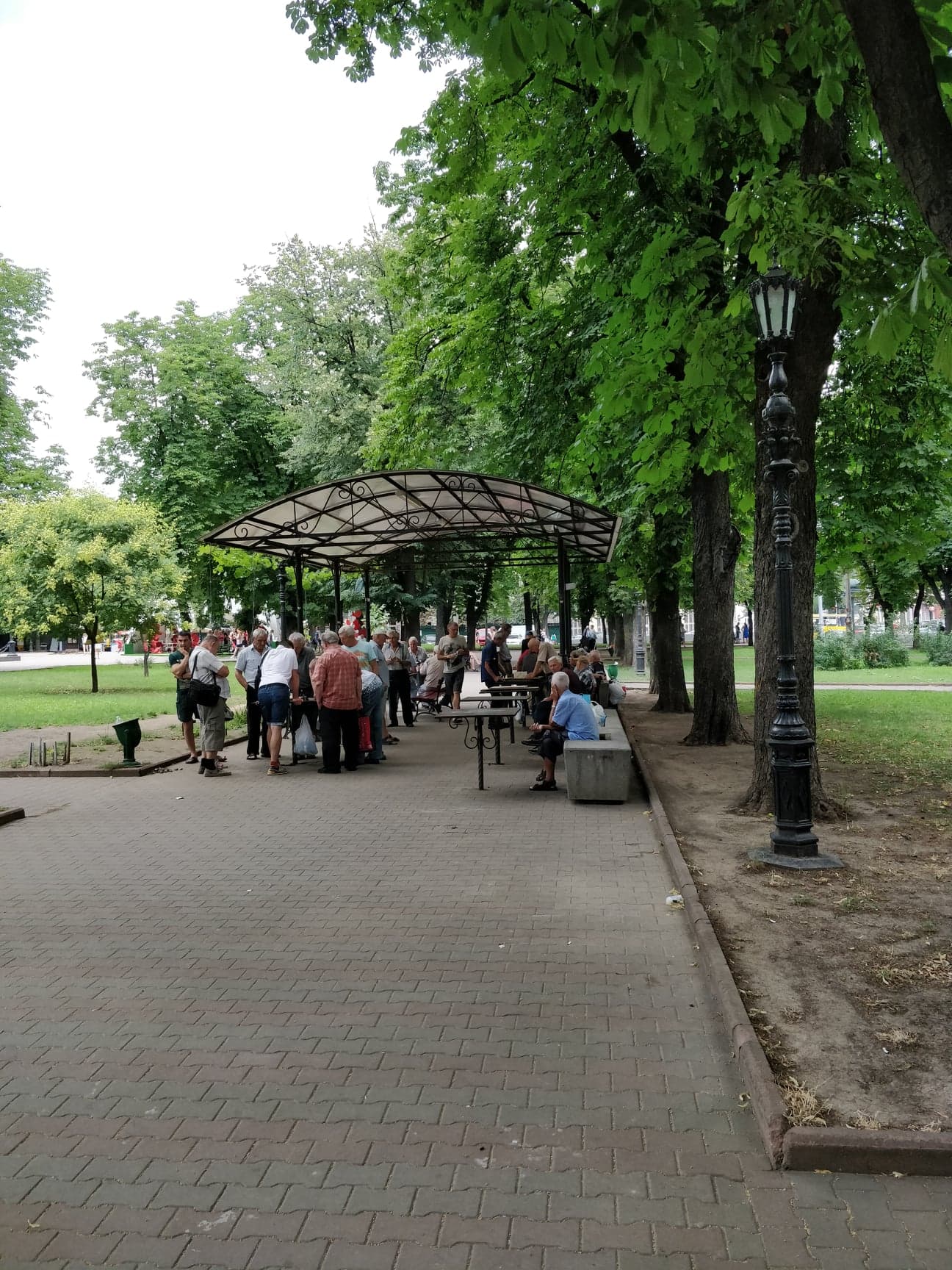Odessa Sketches
By Tim Livingstone
Images by Tim Livingstone
1
An old lady, laden with plastic and shopping bags, limped along in the manner of most old people who’ve walked a fair few kilometres in their lives. The bench was the refuge she sought, since she plonked herself on the wood with a huff and began to rifle through her bags. She muttered incessantly to herself in a soft stream of Russian.
She continued to mutter like this over the next quarter-hour, on her face an expression of the sort of bitter disappointment that hasn’t yet turned to outright anger or exasperation. She cast aside a carton of cigarettes after inspecting inside and confirming it was empty.
You could think that such a character, who seems to be a rather common sight in the public gardens of any city, would be shunned by the public, or at least ignored or avoided with a cursory glance, for her ramblings. Nothing is more false.
“Dobry den,” came the voice of the large blond man who had been sitting at the chess boards down the path, as he walked past this babushka.
Five minutes later, a similarly dishevelled - though not as old - man approached the woman and engaged her in conversation.
This man - in his half-buttoned shirt, loose, tawny trousers, slippers without socks, and a grey hairline which had receded a third of the way along his cranium - might have come across as wretched, but the strength and youth in his voice lent him a degree of dignity.
The woman’s countenance was more animated now, though her voice continued to emit the same soft stream of Russian as before; it seemed that now all that had changed was the appearance of an audience.
The woman proceeded, without breaking the flow of her discourse, to extract from one of her many bags a bread roll, which she had eaten a bit from earlier. The man had apparently come to the lady for this very item, because he proceeded to scrounge from his baggy, deep pockets a handful of paper notes, which, having been counted, he presented to the lady. It was a transaction.
The purchase finished, the man took his leave, spirited away to wherever he had come from. His absence lasted but a minute, as, abruptly, he reappeared in front of the babushka. She seemed to expect this, as her expression of soft disappointment remained etched in her face while the man took a seat beside her, munching on his bread roll and conversing with her as if he hadn’t left.
2
A cigarette protrudes from the young, tan face of the garbage truck worker. This look encompasses his person; working the garbage truck’s levers with his gloved hands, the cigarette hangs casually, just the way his arms move: methodically, calmly.
A glance up at the newfound quiet and the green truck is gone. The American pop music dominates the soundscape from Café Molodost’s speakers, though the low rumble of buses, trams, and old cars flying down Pushkinskaya street accompany it.
You hear sporadic Russian from the patrons nearby, as well as from the shorts and shirts-clad workers on the footpath.
As the harsh sun continues its work heating up the city, the shade from the café’s awning and the cool breeze which floats its way up Hretskaya street from the Black Sea are a relief.
***
Down at the Literary History Museum a couple of hours later, that clean-white cigarette still hangs from the garbage man’s mouth. The warden of the garden - a plump, blonde woman whose main occupation seems to be feeding the four cats which crawl all over her - gives the man some instructions, to which he replies with that same casual demeanour and unchanging expression on his face.
Again the loud whirr of the garbage truck has departed, leaving the sounds of the garden workers’ labours (metal clanging, dull thuds of hammers) to mingle with the bubbly chatter of the fountain.





